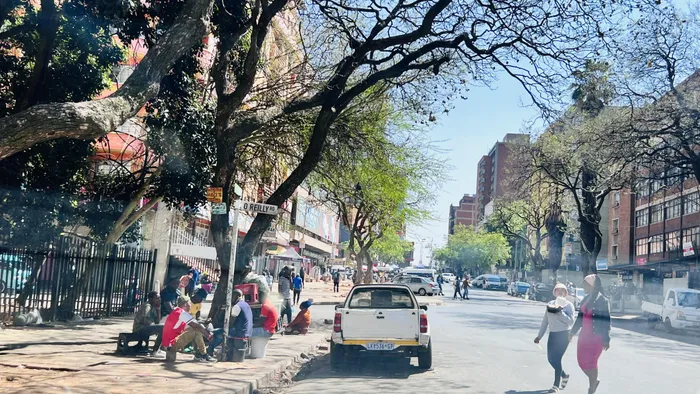
Concerns over Johannesburg's cleanliness and safety ahead of G20 Summit
Image: Thabo Makwakwa / Independent Newspapers
As Johannesburg prepares to host the prestigious G20 Summit on November 22-23, 2025, doubts abound over the city’s ability to maintain cleanliness and safety long after the global event concludes.
Residents, street vendors, and political opposition leaders have voiced skepticism about Mayor Dada Morero’s capacity to sustain the temporary improvements seen ahead of the summit.
Johannesburg’s selection as the G20 host city has injected development efforts, including enhanced street cleaning and pothole repairs.
However, locals remain unconvinced that these changes will last beyond the summit’s international spotlight.
Adam Ndlovu, a street vendor selling cigarettes and fruits, said, “If it were not for the G20, the city would remain neglected. It’s rare to see rubbish collected regularly or potholes fixed – these efforts only happen because of the G20.”.
Lorie Klein, manager of the Parkmore Residents Association, cautiously expressed doubt in long-term change.
“Unfortunately, I do not see this as a possibility, the City gets a ‘clean-up and shake-up’ before big events, only to revert to the usual mess shortly after. There are no consequences, no sustained law enforcement.”
Belinda Kayser, leader of the Democratic Alliance Caucus in Johannesburg, criticised the city’s leadership for “event-driven governance”—short-term fixes designed for appearances.
“Once the summit ends, residents will again face dirty, unsafe streets unless there’s real change,” Kayser said.
She cited President Cyril Ramaphosa’s recent comments at the ANC’s roll call, encouraging the ANC to learn from the DA’s leadership in municipalities where it governs.
Mayor Dada Morero did not respond to requests for comment.
City spokesperson Nthatisi Modingoane highlighted the city’s technological and collaborative approach.
“The City operates the Integrated Intelligence Operations Centre (IIOC), utilizing a network of cameras to monitor public spaces and assist law enforcement. In partnership with Vumacam, a private security company, the Johannesburg Metro Police Department (JMPD) gains real-time intelligence.
Modingoane also described a multi-agency strategy involving SAPS, Community Policing Forums, and private security to increase police visibility and safety.
On cleanliness, the city has implemented “a street-by-street and block-by-block cleaning system, increased the frequency of refuse collection, and plans to introduce officers to enforce illegal dumping by-laws alongside campaigns such as the “War on Waste” and “CBD Fridays Cleanup.”
“People of Johannesburg are constantly urged to work with the City to curb lawlessness,” Modingoane said.
“Activities such as littering, illegal dumping, and vandalism of public infrastructure reverse the gains we are making.”
As Johannesburg prepares to welcome world leaders for the G20 Summit, it remains to be seen whether the momentum for cleanliness and safety will be sustained for the benefit of residents or whether the city will slip back into its familiar state once the cameras have gone off.
thabo.makwakwa@inl.co.za
IOL Politics
Related Topics: